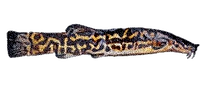https://doi.org/10.1016/j.aquaculture.2024.741041
https://www.sciencedirect.com/science/a ... 8624005027
Keywords: Catfish,Heat stress, Oxidative stress, Histopathology, TranscriptomeHighlightsAbstract
- The adaptability and recovery of C. fuscus were studied after acute high temperature and temperature recovery.
- Chronic heat stress resulted in the change of oxidation balance in C.fuscus.
- Chronic high-temperature culture impairs C. fuscus hepatic function.
- After long-term heat stress, the molecular pathways and response degree of C. fuscus to heat stress decreased.
Global climate change has a significant impact on fish survival and the aquaculture industry. Even highly adaptable organisms like Siluriformes fish are susceptible to these effects. This study investigates the consequences of extreme high temperature on Hong Kong catfish (), a species known for its long-term habitation in tropical and subtropical regions. In this study, C. fuscus were cultivated for 90 days at high temperature (HT, 34 °C) and normal temperature (NT, 26 °C), followed by subjecting the two groups to high temperature stress (34 °C) and temperature recovery (26 °C). The hepatic histology, biochemical, and transcriptomic characteristics of the species were examined before acute high temperature stress (NT-C, HT-C), after acute high temperature stress (NT-T, HT-T), and after temperature recovery (NT-R, HT-R). The histological analysis revealed that long-term heat stress damaged the liver tissue of C. fuscus. Furthermore, significant damage was observed in the liver tissues of the NT group under acute high temperature stress, while no further damage was observed in the HT group. The biochemical analysis showed that 90 days of heat stress altered the body's immune and oxidative balance, resulting in an increase in alkaline phosphatase (ALP), alanine aminotransferase (ALT), catalase (CAT), superoxide dismutase (SOD) and glutathione peroxidase (GPX) activities, and a decrease in malondialdehyde (MDA) content. Upon acute heat stress, the liver function of the NT group was disordered and unable to produce enough total-bilirubin (T-BIL), while the aspartate aminotransferase (AST) activity of the HT group was more susceptible to being affected. Long-term heat stress led to significant changes in gene expression, with the NT group showing three times more differentially expressed genes (DEGs) identified in the liver compared to the HT group under acute heat stress conditions. Analysis of DEG enrichment during the same treatment period in both groups revealed significant differences in amino acid metabolism and lipid metabolism pathways. These results suggest that long-term heat stress caused liver tissue damage in C. fuscus, altering immune and oxidative balance, enzyme activity sensitivity, as well as the body's response to acute heat stress pathways and intensity. This study lays the groundwork for future investigations into fish adaptability to sudden temperature changes and aquaculture strategies to mitigate heat stress in fish facing extreme temperatures.





